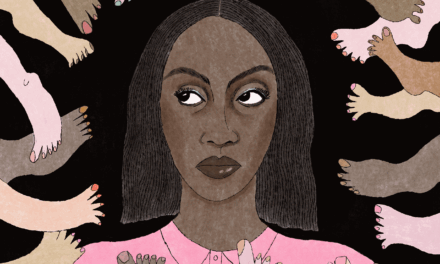Black women of African descent were the most likely to die during an outbreak of bubonic plague between 1348-1350 in the British capital London, according to research published in the Bioarchaeology International journal.
Researchers at the Museum of London wanted to understand the potential role played by racism in Black Death fatalities and dismantle the image of a white medieval England.
Using remains from 145 people found in three UK cemeteries, which had been designated for plague victims, the researchers examined the victims’ bones and teeth to make sense of the racial makeup of the deceased.
Of those 145, the researchers determined 49 had died of plague, nine of whom were of African descent (around 18%). The 96 who had died of other causes included eight people of African descent (around 8%). The researchers said this higher proportion of African people who had died of plague versus other causes could be representative.
Chaucer’s medieval London a ‘Black London’
The researchers found that more people of color, and Black women in particular, were buried in cemeteries for people who died of the plague than those who were not Black.
A vast majority of Black people in medieval London at the time were slaves to wealthy merchants.
“Chaucer’s 14th century medieval London was a Black London,” said study author Dorothy Kim, a professor at Brandeis University in the US. [Ed.: Geoffrey Chaucer was, among other things, an English poet and civil servant, involved in public affairs in the mid-to-late 1300s.]
Death of the plague was largely relegated to the least privileged in society, the authors wrote in their study paper and said their results are an indication of the “devastating effects” of “premodern structural racism.”
The Black Death is widely considered one of, if not the, most devastating public health disasters in history.
Over 50 million people died in the plague — around 60% of Europe’s population. At the time, people did not understand how it spread. Research has since shown the plague was passed on by droplets in the air (as understood through the COVID-19 pandemic) or rodents carrying infected fleas.
A ‘white nostalgia’ for medieval London
The authors wrote in the study that their work highlights “how a substantial community can be erased from history.”
Although previous research has noted the multiracial character of British society in medieval times, the period is often falsely considered to have been purely white, they said, referring to a “white nostalgia.”
“This white nostalgia is rooted in the same white supremacist ideology that has fed contemporary violence,” the authors wrote.
“Likewise,” they wrote, “medieval studies scholarship has boosted this ‘preracial’ version of the premodern past that has allowed medieval cultures, societies, writers, and powerbrokers to hide behind ‘white innocence,’ when the truth is that race (structural racism) was invented, refined, and rehearsed in medieval England.”
The researchers said their work offers a “premodern example” of discussions that have taken place since 2020 concerning race and the COVID-19 pandemic, which disproportionately affected Black people.
“[This research] shows that there is a deep history of social marginalization shaping health and vulnerability to disease in human populations,” said Sharon DeWitte, also a study author, and biological anthropologist at the University of Colorado.
While for centuries, the Black Death was considered a “universal killer” that did not discriminate between its victims, there a growing body of research, including this latest study, that questions the assumption.
Edited by: Zulfikar Abbany





